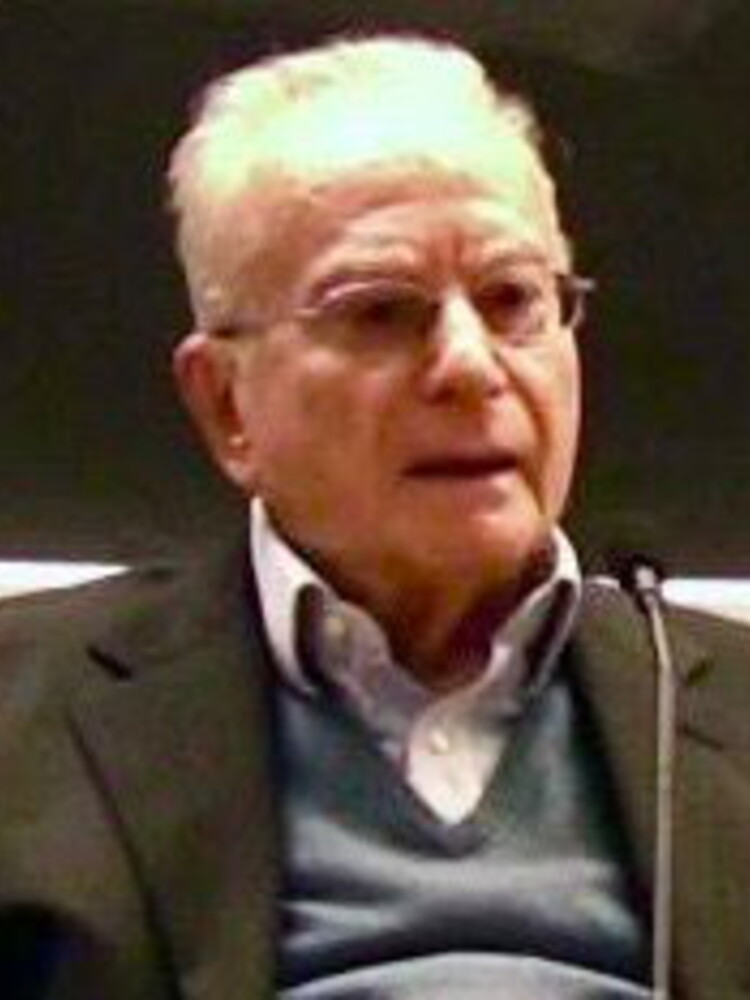He was considered the greatest criminal lawyer in Italy, already a favorite student of Francesco Carnelutti who had wanted him at his side after having appreciated him as a student at university. Giuseppe De Luca avoided compliments, with that shyness of his which for those who didn’t know him could border on haughtiness. Nothing was further from his way of being in everyday and professional life, when his entrance in a lawyer’s robe into a courtroom made the news and his speeches aroused admiration even in his counterparts. He was a prince of the forum in spite of himself. No theatrical rhetoric, but very lucid analysis of the case and procedural rules, because De Luca knew how to see beyond the codes and into the folds of the rules, dealing with the great trials of the 20th century, with intelligence and with systematic victories that rewarded her. He passed away at the age of 98 due to the consequences of a lung infection in Rome, where he had moved from the town of Picciano where he was born in 1926, then in the province of Teramo and from the following year in the province of Pescara wanted by Gabriele d’Annunzio and the Baron of Aterno Giacomo Acerbo.
The son of elementary school teachers, he was a cousin of Emilio Alessandrini
In Picciano, his father Pasquale and his mother Ada Alessandrini, aunt of the magistrate Emilio who was killed by Prima Linea in 1979, were teachers in primary school. They had immediately understood that their two sons, Peppino and Diego, had a predisposition for studies and had thus sent them to university: the eldest had chosen law, the second medicine (a specialist in tropical diseases, he would become a Vatican doctor with Paul VI), and both will have extraordinary academic and professional results. The first great showcase, in 1948, the trial of Marshal Rodolfo Graziani, in the defense panel coordinated by Carnelutti. Then sensational cases such as that of Wilma Montesi’s crime in 1953, with him assisting the musician and composer of film soundtracks Piero Piccioni, son of the minister Attilio forced to resign by the scandal. Acquitted. Giuseppe De Luca will always defend Sophia Loren, arrested by the Financial Police in 1982 on charges of tax evasion together with her husband Caro Ponti and locked up in the Caserta prison.
Professor of criminal procedure at La Sapienza University
The lawyer from Abruzzo who moved to Rome is the spearhead of criminal procedural law, a subject he teaches at the La Sapienza University of Rome where his teacher Carnelutti had taught. The other global scandal, with the seizure for obscenity and the burning of the film “Last Tango in Paris” in 1976, saw him alongside the director Bernardo Bertolucci who had initially been condemned with the loss of civil rights for 5 years. De Luca is far from Ciceronian rhetorical advocacy as a mindset, just as he stays away from the mass media which give wide prominence to trials, such as that of 1968 in L’Aquila, in his native Abruzzo, for the Vajont dam disaster. Reluctant to appear, almost fearful of interviews, he keeps the same low profile with which he holds his speeches: a distillation of logic and in-depth knowledge of the law, alien to the external manifestation of forensic spectacularization.
Away by choice from the spotlight and the mass media
He is not popular and not known to the general public, and that is exactly what he wants. His name comes out forcefully when Silvio Berlusconi calls him to defend him in the first flurry of lawsuits that hit him. He is the one who pulls the procedural strings and the results are visible. Berlusconi would like him to be Minister of Justice in his first government, but De Luca thanks him for the consideration and says no. It is not his world, made up of studies, research, crossing blades with prosecutors in a duel in the name of law. He always and only uses the foil, even when faced with the sabers of the accusation: he parries and returns, or anticipates the moves. In his studio in via della Conciliazione where he calls Paola Severino and Ennio Amodio parade both the powerful and the villagers and friends with whom he has never severed any contact, always generous with advice or in taking to heart causes of much lower levels of those in which he is the protagonist.
Abruzzo roots and summers in Silvi Marina’s house
He returned to Picciano as long as his parents were alive, but every summer, as long as his health permitted, he spent his holidays in the family villa in Silvi Marina, a few dozen meters from the beach. He likes to walk, talk about current events and history, in every topic he demonstrates mastery and competence, but without the pedantry of a university professor. He always believed in meritocracy, for a better society, but in recent times that hope had faded, even if he continued to believe in law and when he recognized talent in young lawyers he praised and encouraged them. In his Picciano they knew him as “don Peppino”, a remnant of Spanishism that made his father call him “don Pasquale” and his mother “donna Ada”. For some time he had chosen to rest in the village cemetery next to them.
